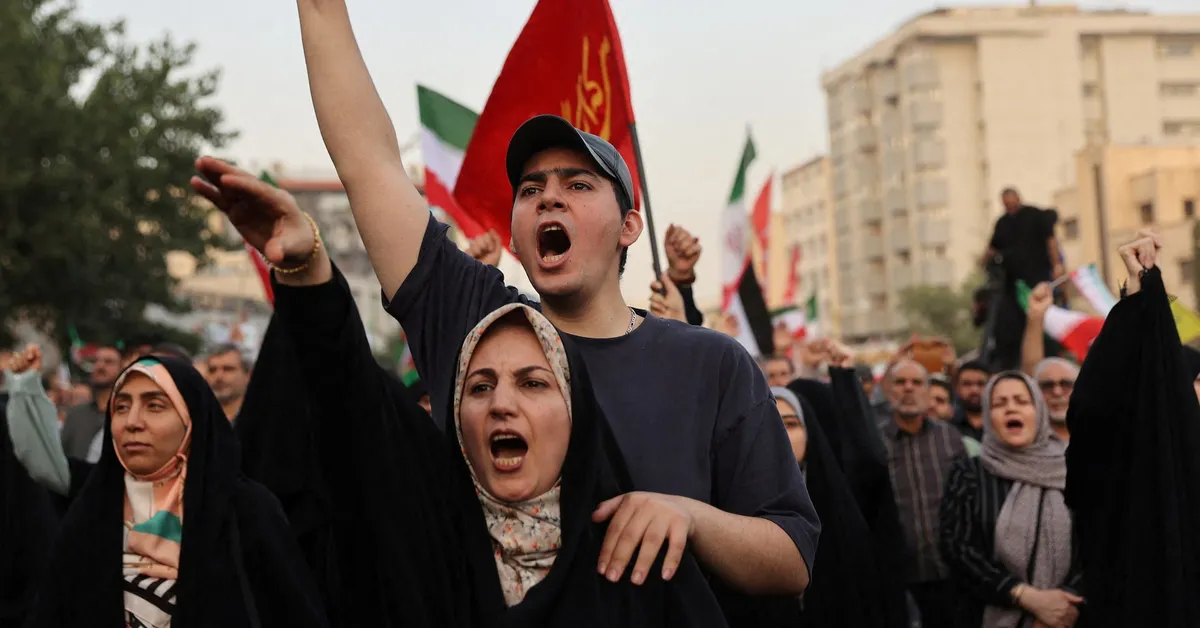
On June 25, 2023, a ceasefire brokered by U.S. President Donald Trump between Iran and Israel appeared to be holding, signaling a potential end to a 12-day air war that escalated tensions in the Middle East. Both nations claimed victory after a series of airstrikes, with the United States joining the conflict to support Israel by targeting Iran's uranium-enrichment facilities.
In a statement made late Tuesday, Trump's Middle East envoy, Steve Witkoff, expressed optimism regarding ongoing discussions between the United States and Iran. Witkoff noted that the conversations were not only direct but also facilitated through various intermediaries. He emphasized, "We are hopeful that we can have a long-term peace agreement that resurrects Iran." This sentiment was echoed in an interview on Fox News' The Ingraham Angle, where he highlighted the importance of reaching a comprehensive peace agreement with Iran.
Trump claimed over the weekend that U.S. stealth bombers had effectively "obliterated" Iran's nuclear weapons program. However, this assertion faced scrutiny from an intelligence report produced by the Defense Intelligence Agency. Sources familiar with the matter indicated that Iran's enriched uranium stocks remained intact and that the country's nuclear program, largely hidden underground, may have only been delayed by a month or two. The White House dismissed these findings, asserting that the intelligence assessment was "flat out wrong."
Israeli Prime Minister Benjamin Netanyahu stated that the recent strikes had significantly diminished the nuclear threat posed by Iran. He claimed that two immediate existential threats had been neutralized: the potential for nuclear annihilation and the threat of attacks from Iran's ballistic missile arsenal. On the Iranian side, President Masoud Pezeshkian declared the end of hostilities a "great victory" and expressed Iran's readiness to resolve differences with the U.S. in a communication with Saudi Crown Prince Mohammed bin Salman.
The conflict began on June 13 with Israel's surprise airstrikes on Iranian nuclear facilities, marking the most severe assault on the Islamic Republic since the 1980s war with Iraq. Iran retaliated with missile attacks on Israeli military sites and urban centers, resulting in significant casualties on both sides. Reports indicate that Iranian forces arrested 700 individuals for alleged ties to Israel, and three men were executed for collaborating with Israel's Mossad agency.
As of Tuesday evening, Israel's military lifted restrictions on nationwide activities, and Ben Gurion Airport reopened. Iran also announced the reopening of its airspace. Oil prices saw a slight increase as investors weighed the stability of the ceasefire against the likelihood of an impending Iranian blockade of the Strait of Hormuz.
Despite the ceasefire, both Israel and Iran were slow to acknowledge its acceptance, with each party accusing the other of violations. Trump urged both nations to de-escalate tensions, directing particular criticism towards Israel. Israel's Defense Minister Israel Katz assured his U.S. counterpart, Pete Hegseth, that Israel would maintain the ceasefire unless provoked by Iran. Similarly, Pezeshkian asserted that Iran would honor the truce as long as Israel did.
Israeli armed forces chief of staff Eyal Zamir indicated that while a significant chapter of the conflict had concluded, the campaign against Iran was far from over. He explained that the military would shift its focus back to combating Iran-backed Hamas militants in Gaza. Reports from Iranian authorities stated that Israeli strikes resulted in 610 fatalities and 4,746 injuries in Iran, while retaliatory bombardments from Iran killed 28 individuals in Israel.
As the region navigates this fragile ceasefire, the implications for future peace and stability in the Middle East remain uncertain.